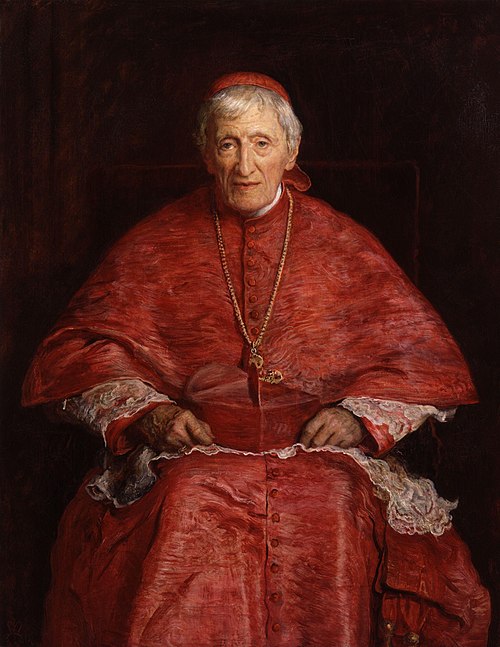This article first appeared in Our Sunday Visitor magazine. Subscribe to receive the monthly magazine here.
Most of us, most of the time, struggle to know what our life is really about. Am I living correctly? Am I fulfilling my mission? What is my calling? What is my calling now? What is the Lord’s will for me? Do I really even know how to interpret the Lord’s will?
While there are certainly plenty of occasions when our dereliction in faith and our own sinfulness lead us into confusion and even a sense of purposelessness, it is also true that struggling and straining to live according to the Lord’s call for us are part and parcel of the Christian life. We are not our own authors; we do not have control over the story we are in or the role we are meant to play. And yet, even when we are least certain and our vision is most clouded, we are not powerless. We can remember, we can believe, we can trust, and we can offer.
In his “Meditations on Christian Doctrine,” St. John Henry Newman expressed the drama of seeking after our purpose in the Lord. He does not proclaim pristine knowledge, nor does he herald an end to uncertainty in this life. What he meditates on is God’s providence, our dependence, and the way God offers himself to us and we to him.
What follows are four sections from Newman’s meditation, with my own commentary after each part. I offer these as spiritual reflections for anyone who struggles to know his or her purpose in life.
Called by name
God was all-complete, all-blessed in Himself; but it was His will to create a world for His glory. He is Almighty, and might have done all things Himself, but it has been His will to bring about His purposes by the beings He has created. We are all created to His glory — we are created to do His will. I am created to do something or to be something for which no one else is created; I have a place in God’s counsels, in God’s world, which no one else has; whether I be rich or poor, despised or esteemed by man, God knows me and calls me by my name.
Our existence proclaims God’s providence. We need not be, yet we are because God has willed us to be. And the meaning of our existence is to participate in bringing about his will, to further his purposes, though he does not need us in order to bring about what he intends. The point is that he chooses us, in an absolute way. He chooses each of us, not in the sense of one option among other possible options; rather, his choice for us is what brings us into existence in the first place. We are each possible because he has already chosen. This is the foundation of our purpose in this world: God’s choice comes first.

Given a mission
God has created me to do Him some definite service; He has committed some work to me which He has not committed to another. I have my mission — I never may know it in this life, but I shall be told it in the next. Somehow I am necessary for His purposes, as necessary in my place as an Archangel in his — if, indeed, I fail, He can raise another, as He could make the stones children of Abraham. Yet I have a part in this great work; I am a link in a chain, a bond of connection between persons. He has not created me for naught. I shall do good, I shall do His work; I shall be an angel of peace, a preacher of truth in my own place, while not intending it, if I do but keep His commandments and serve Him in my calling.
God’s election of each one of us is anything but generic and vague. His choice for us is unfathomably personal. To each, he intends some “definite service,” a way of serving him in the here and now, in the concrete circumstances of our time and place, with our specific gifts and limitations, with the particular persons among whom we are placed. Discerning exactly what that calling is for each of us is challenging and ultimately only ever partial. We do not fully see what we are made for. Rather, we trust that God knows his intention for us. Our part is to remain faithful to his commandments and strive to serve him as best we know how.
Sent as we are
Therefore I will trust Him. Whatever, wherever I am, I can never be thrown away. If I am in sickness, my sickness may serve Him; in perplexity, my perplexity may serve Him; if I am in sorrow, my sorrow may serve Him. My sickness, or perplexity, or sorrow may be necessary causes of some great end, which is quite beyond us. He does nothing in vain; He may prolong my life, He may shorten it; He knows what He is about. He may take away my friends, He may throw me among strangers, He may make me feel desolate, make my spirits sink, hide the future from me — still He knows what He is about.
Faith is an act of trust. In the life, death and resurrection of Jesus Christ, God has revealed his faithfulness to our humanity. Into the depths of sorrow and perplexity and even the sickness of sin, the Son of God has gone and — from below the depths we can even imagine — was raised up and ascended to the right hand of the Father. The full path of his incarnation — the descent and the ascent — is our guarantee of God’s trustworthiness. The response, on our part, is to actually trust him. This trust is not based on the present condition of our lives, whatever that condition may be. Instead, this trust is based on his goodness, his faithfulness, his providence. We cannot always see these things — trust is necessary. If we are lost, he is not. If we are perplexed, he is not. If we wander, he does not. If we stray, he does not. If we doubt, he does not. If we fail, he does not. Even our weaknesses and our lapses are made to serve his purposes if we but entrust ourselves to him again. The critical thing for us is to trust.
Born to serve
O, my God, I will put myself without reserve into Thy hands. Wealth or woe, joy or sorrow, friends or bereavement, honor or humiliation, good report or ill report, comfort or discomfort, Thy presence or the hiding of Thy countenance, all is good if it comes from Thee. Thou art wisdom and Thou art love — what can I desire more? … I am born to serve Thee, to be Thine, to be Thy instrument. Let me be Thy blind instrument. I ask not to see — I ask not to know — I ask simply to be used.
What can we do? We can pray and we can offer ourselves. We can make a habit of giving ourselves to the Lord. Often, we pray words before we mean them fully. Our tongues may go ahead of our hearts, our declarations ahead of our intentions, our pledges ahead of our power. To pray such a prayer as this and to dare to offer ourselves in such a complete way is itself an act of trust. It is the act of trust that can be made daily, each morning, committing the day to come to the glory of the Lord, come what may. It may be offered each evening, placing all our activities of the day and our nightly rest that is to come into the Lord’s safekeeping. It is not a prayer for certainty, for vision or even for understanding. This radical prayer places us in the position of offering our very will in advance to the purposes that God intends. We place before him even our ability to discern and concur in each instance. This exercise of our will is paradoxical: We offer up our liberty to will as we please, according to our own knowledge. It is a gift made in advance, in response to the one whose choice for us comes in advance of everything.








